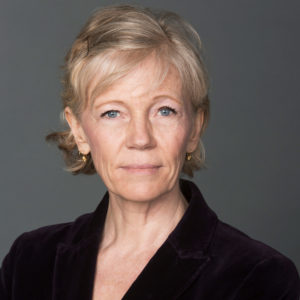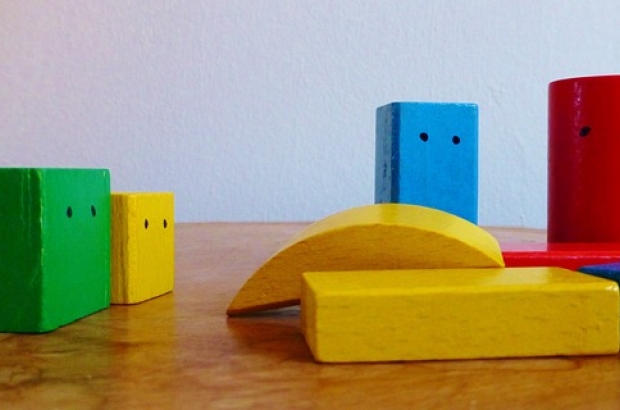- Daily & Weekly newsletters
- Buy & download The Bulletin
- Comment on our articles
How mediation can prevent and resolve conflicts, within the family and the workplace
If legal and professional disputes are already an emotional minefield, they risk being even more of a lengthy, stressful and expensive ordeal when the parties have a multicultural background.
With Mediation Week currently being staged in Belgium, The Bulletin talks to the multidisciplinary and multilingual team at PMR (Prevention, Mediation, Resolution Europe) about why mediation is increasingly being used to resolve a range of disputes.

In acknowledgement of Belgium’s notoriously protracted legal system, judges can “force parties” to go to mediation, unless both refuse, since a second legal ruling in Belgium in 2018, explains Coralie Smets-Gary (pictured). The former lawyer co-founded PMR 17 years ago and has witnessed a sea change in the mentality around mediation. Not only do judges have more power to impose it, a younger generation of lawyers are now more interested in amicable settlements and more people are being trained in the profession.
Her Uccle company handles family, commercial and labour disputes. Family conflicts involving child custody, inheritance and businesses are among the most difficult, says Smets-Gary: “Not only is the law complicated, you are having to deal with long stories of frustration and jealousy.”
How do mediators cope with these situations? “It’s difficult of course but you have to take a practical view to reach an agreement. You also have to handle psychological issues and most of the time very intense emotional issues.”
If a dispute automatically implicates emotions and the ego, both need managing to resolve the situation, points out Smets-Gary. ”People usually think the problem is caused by the other party.” But the alternative is often a drawn-out emotional rollercoaster of a case. “You need to know when you enter a legal process that it can take five to 10 years and you will read legal briefs that may treat you in such a way that’s quite awful.”
Another potential hurdle is taking personal responsibility for the situation. “In all cases, there’s always partial responsibility. Once you realise this, you need to work at solving the problem.” If her message is that mediation requires individual effort, it’s also that, “life is short and it’s useless to suffer.”
High success rate
Are there cases where mediation doesn’t work? “The rate of success is quite high, around 80%. When it doesn’t work, one reason is that one of the parties is psychologically stuck and wants to continue to suffer and fight, possibly with a feeling of revenge.” When clients continually change lawyers, “one can ask oneself whether it is such a situation. Mediation can also fail in those cases where a lawyer may suggest to their client that they have a stronger case to bring to court than they really do.”
An increasing emphasis on prevention, especially in the workplace, is an area of interest for Smets-Gary. “You identify with your work and when your contract is terminated, you ask yourself who you really are? That’s why you suffer so much.”
Bilingual French and English, and trained partly in the US and Canada, Smets-Gary ensures that PMR’s team is multilingual to meet the needs of the EU capital and the international community. It also offers a training service as well as providing mediators for private or public companies, who are realising that it’s good to have a staff member trained in mediation to solve, manage or prevent conflicts. In large firms, it should even be mandatory, she believes.
PMR has six permanent mediators as well as co-working lawyers trained as mediators. Combined with the training team, they now number 20. If not all trained mediators go on to practice, they pick up some useful tools for their daily lives. “These include active listening, being able to identify the needs behind a position, generating viable options and finally finding a balanced solution acceptable to all parties,” confirms Smets-Gary.
More than one way to settle a dispute

One of PMR’s accredited mediators is William Mulhern (pictured), originally from Ireland. His previous professional experience working for a large technological company, included crisis management.
“Mediation is a bit different because you’re making sure that the process works and that everyone gets a chance to speak,” he explains. When it comes to cultural differences, it’s often the things that are not being said and not being heard that need to be teased out. “When things seem to be repeated multiple times, there’s usually something behind it and someone’s getting frustrated at not getting their point across.”
If there are many ways of solving disputes, one of the fundamental points of mediation is respect for the individual, he says. “They are the ones motivated to find a solution, which is why the chances of it working are much higher. Of course, the mediator is there to set boundaries, and it has to be a solution that you’re prepared to live with.”
While a more humane approach compared to a gruelling legal case may appeal to many, mediation sessions are more than “having a nice conversation” and can involve doing some hard work, asking and answering some difficult questions, says Mulhern. The process is equally draining for the mediator, which is why two might be assigned, without any extra cost to the client. “It gives you extra support as well as overall balance,” he adds.
Again, Mulhern underlines the importance of prevention, particularly when it comes to burnout, “managing issues before they kick off”, in addition to the importance of drawing up new home working rules post-pandemic as an example of a recent issue that needs careful management..
“It’s important in the return to work, both post-Covid and post-burnout, to find better ways to make sure people are as effective as possible in the workplace.”
Mulhern is keen to speak out about the benefits of mediation because as it’s confidential – even judges are not informed of the details – many people are unaware of the extent of the practice.
“It saves time, money and relationships. For any type of conflict where there’s a need to take care of a relationship, there’s a role for mediation,” he concludes.
Photo: (main image) © Ulrike Mai/Pixabay


















